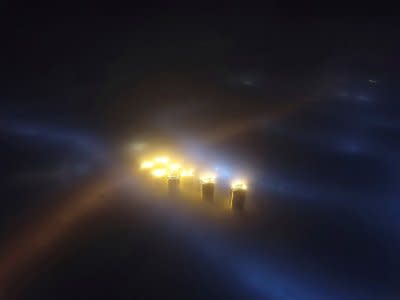China's capital issues first major smog alert of winter

Thomson Reuters
BEIJING (Reuters) - Beijing issued its first major smog alert of the winter for the capital, triggering stringent measures to curb output of heavy industry as plunging temperatures spurred heating demand.
The orange alert issued late on Thursday, the second highest on China's four-level system, comes after Beijing was reported to have made big improvements in air quality last year as industrial activity shifted away from the capital.
The Ministry of Environmental Protection warned in a statement that heavy air pollution will envelope Beijing, Tianjin, Hebei and the surrounding area from Friday until Jan. 17.
According to the forecast, southern areas of Beijing, Tianjin, Hebei, southern Shanxi, western Shandong, northern Hebei will suffer from toxic air from Jan. 13 to Jan. 15. On Jan 15, level of air pollution is expected to surge to the maximum, it said.
Under an orange alert, factories that make furniture, cement and other heavy industry must limit output by between 30 and 50 percent. A list of companies in the capital affected contains more than 700 enterprises.
The capital has been largely spared the notoriously bad air that typically blankets the north during the colder winter months when people crank up the heat in their homes in part to the government's stringent anti-smog measures, including curbing factory output and banning coal burning in homes.
But this alert comes a month after the government was forced to reverse its ban on coal for heating as gas shortages left people freezing and after a prolonged bout of freezing weather across the north.
The city issued an orange alert in early November before the winter heating season started on Nov. 15.
On Wednesday, the government said all 28 Chinese cities in a demanding winter anti-smog campaign met their air quality targets from October to December, the environment ministry.
The 28 northern cities were ordered to cut concentrations of small, breathable particles known as PM2.5 by 10-25 percent during October 2017-March 2018. They have been curbing industrial output, thinning traffic and cracking down on coal use in a bid to limit smog build-ups.
(Reporting by Josephine Mason and Beijing News Monitoring; editing by Richard Pullin)
See Also:

 Yahoo News
Yahoo News 
